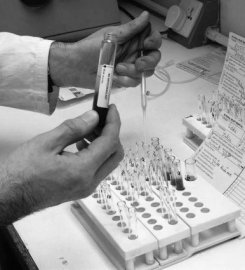 A study in the Journal of the American Medical Association suggests that screening men for prostate cancer may not reduce their risk of dying. Screening for prostate cancer usually involves a blood test known as the prostate-specific antigen (PSA) test, which is followed by a digital rectal examination.
A study in the Journal of the American Medical Association suggests that screening men for prostate cancer may not reduce their risk of dying. Screening for prostate cancer usually involves a blood test known as the prostate-specific antigen (PSA) test, which is followed by a digital rectal examination. The new study contends that there is little evidence to support the effectiveness of the tests in reducing death. The findings follow on from two other studies that questioned the effectiveness of the PSA test and suggested possible replacements for it.
The new study sought to address the question of whether screening improves the chances of prostate cancer survival. The research looked at men who had died from prostate cancer and another group of living men who were matched for age and treatment to a man from the first group. The medical records of both groups were then reviewed to determine whether men in either group had been screened for prostate cancer.
The researchers found that 14 percent of the men who died of prostate cancer and 13 percent of the men in the control group were screened using PSA. The researchers suggest, based on these figures, that if prostate cancer screening prevented death, fewer men who died would have received screening compared to the men who were living. Worryingly, screening was not found to reduce mortality among men who were younger or healthier. The results, say the researchers, suggest that screening tests can increase the detection of cancer, but not necessarily prolong survival.
"Based on available evidence, including the present study, recommendations regarding screening for prostate cancer should not endorse routine testing of asymptomatic men to reduce mortality. Rather, the uncertainty of screening should be explained to patients in a process of 'verbal informed consent,' promoting informed decision making," said the researchers.
Commenting on the new study, Michael J. Barry, from Massachusetts General Hospital, said the downside of PSA screenings was becoming more apparent. "The poor specificity of PSA testing results in a high probability of false positives requiring prostate biopsies and lingering uncertainty about prostate cancer risk, even with initially negative biopsy findings," he said, adding that aggressive treatment can cause incontinence and sexual dysfunction. Barry said it was important that additional studies be carried out to determine if the benefits outweigh the risks for most men.
Based on material from the Journal of the American Medical Association





